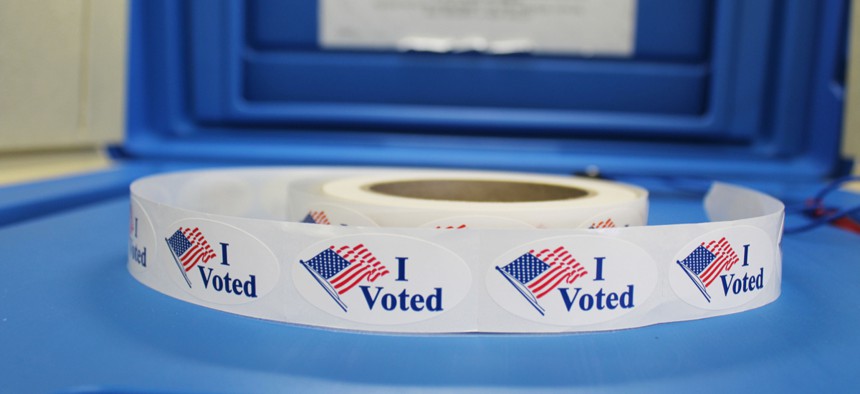Local Election Officials Can Get Free Election Auditing Software from the Feds

Barbara Kalbfleisch/Shutterstock.com
The open-source software is already being piloted in at least six states and officials say it can help authenticate results in 2020.
If foreign adversaries target the 2020 elections as top homeland security officials have warned, they could not only wreak havoc on Election Day but also raise doubts about the accuracy of the results.
To ensure more confidence in the democratic process, the Cybersecurity and Infrastructure Security Agency (CISA) is offering state and local election officials free access to election auditing software.
The open-source software, Arlo, was developed by the non-profit organization Voting Works in partnership with CISA. It will provide election officials who use paper ballots with a tool to conduct risk-limiting audits, considered a best practice by cybersecurity experts.
“Heading into 2020, we’re exploring all possible ways that we can support state and local election officials while also ensuring that Americans across the country can confidently cast their votes,” said CISA Director Christopher Krebs in a statement. “At a time when we know foreign actors are attempting to interfere and cast doubt on our democratic processes, it’s incredibly important elections are secure, resilient, and transparent.”
The software, which is being piloted by some election offices in Pennsylvania, Michigan, Missouri, Virginia, Ohio, and Georgia, is designed to help officials make calculations needed for an audit. Arlo can help elections officials determine how many ballots to audit, randomly select which ballots to audit, and compare audited votes to tabulated votes, according to CISA.
More than 8,000 jurisdictions run elections in the United States. And because elections are overseen at the local and state levels, the resources available to the officials running them can significantly vary.
Providing a standardized, free auditing tool could encourage more jurisdictions to undertake such efforts, said Casey Ellis, chairman and chief technology officer of Bugcrowd, a crowdsourced cybersecurity vulnerability disclosure company.
“The idea of being able to create a fairly simple and standardized tool for everyone to run to create some degree of accountability for the voting process itself is a fantastic move,” Ellis said.
Cybersecurity experts widely recommend that elections officials both use paper ballots and have a system in place to audit the results. All but eight states will utilize systems that create an auditable paper trail of results in the upcoming 2020 elections, according to a recent report by the Brennan Center for Justice. But 24 of those states do not require post-election audits.
In future elections, auditing may come to be an expected part of the process, Ellis said. In the 2020 elections, audits could be used to dispel disinformation campaigns by adding a way to verify results, he said.
“For 2020 in particular, where this will come up and be most useful is when there is meddling or an appearance of meddling,” Ellis said.





